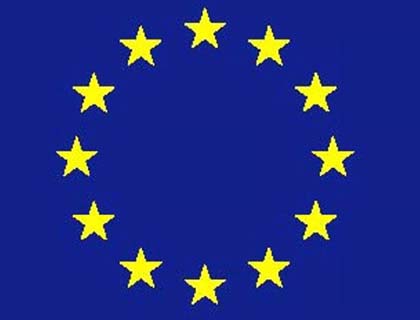BRUSSELS (AP) -- The leaders of 25 European countries on Friday signed a new treaty designed to prevent the 17 members of the eurozone from living beyond their means and avoid a repeat of the region's crippling debt crisis.
The leaders hope the rules for budget discipline set out in the accord, known as the fiscal compact, will also lead to closer political and economic integration in the eurozone.
"It will bring us, as it were, the economic and monetary union that is finally walking on two legs," said European Council President Herman Van Rompuy, who oversaw the drafting of the treaty and its formal signing at a summit in Brussels on Friday.
Only Britain and the Czech Republic decided not to sign the agreement, a move that triggered concern over a rift in the 27-country European Union.
The fact that not every EU state backed the new rules forced the others to set up the separate treaty, rather than integrating the rules into EU law. That prevents its signatories from using some of the union's institutions — such as the European Commission, the EU's executive — to monitor and implement the treaty.
Many Europeans have grown weary of the EU and the euro. Two years of painful austerity in the poorer countries have taken their economic toll, while many in the richer countries are getting frustrated over funding the expensive bailouts for Greece, Ireland and Portugal.
Others fear that the tighter spending rules will limit governments' room to maneuver in tough economic times and force German-style fiscal discipline on countries with vastly different economies and cultures. However, the new deficit limits make some exceptions, such as for severe recessions and other unexpected economic circumstances.
Though the leaders' summit was held under the calmest conditions in financial markets in months, the economic outlook is darkening. Unemployment is at a record high and several countries are forecast to fall back into recession this year, yet the EU leaders were hesitant to back off the austerity policies that have dominated their response to the debt crisis and are now being blamed for the economic downturn.
"We remain in a fragile situation," German Chancellor Angela Merkel warned. "The crisis is far from over."
After a relatively smooth drafting process, the most difficult part of bringing the new rules into force begins. All participating governments have to ratify the treaty, either through parliamentary or popular votes — a process that may prove difficult in some places.
The biggest challenge may lie in Ireland, which has decided it must hold a public referendum to ratify the agreement. This could be a risky proposition — Irish voters initially rejected the EU's previous two treaties in such referendums, delaying European progress toward closer cooperation.
This time, EU leaders have ensured that Irish voters cannot block the fiscal pact. Unlike earlier treaties, this one does not require unanimous support to become law. It will come into force once 12 of the eurozone's 17 members ratify it.
An Irish rejection would chiefly undermine Ireland's own ability to keep paying its bills. The fiscal treaty proposes to prevent any abstaining eurozone countries from receiving loans from the eurozone's future financial backstop, the European Stability Mechanism.
Economists believe Ireland may require a new round of loan aid in 2013 once its current flow of EU-International Monetary Fund bailout funds runs out.
Ireland in November 2010 negotiated a euro67.5 billion ($89.5 billion) EU-IMF credit line and has received euro48 billion ($63.5 billion) so far at an average interest rate of 3.3 percent. The current depressed value of Irish government bonds suggests that, were Ireland to return to normal long-term borrowing today, it would have to pay investors at least double that rate.
__
Carlo Piovano, Don Melvin and Slobodan Lekic in Brussels and Shawn Pogatchnik in Dublin contributed to this story.

